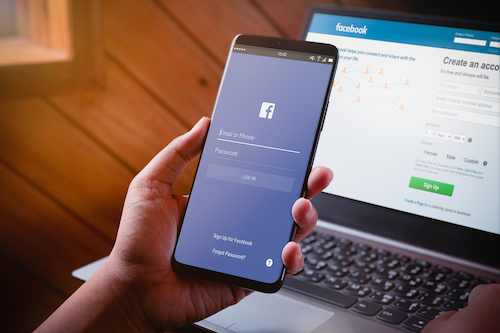 Banning an online jerk from a social media platform may not be the answer to dealing with toxic people. It may just make it worse.
Banning an online jerk from a social media platform may not be the answer to dealing with toxic people. It may just make it worse.
That’s the finding of a study from a group of researchers from Binghamton University, Boston University, University College London and the Max Planck Institute for Informatics in Germany.
They set out to find out what happens when a social media platform bans online jerks.
“My group's work is oriented around understanding online jerks. There have been very few mitigations deployed to address this type of bad behavior, and pretty much every strategy is some variation of banning users,” Jeremy Blackburn, one of the researchers of the study and an Assistant Professor at Binghamton University told Theravive.
“It's an increasingly important problem because of the immense damage that online jerks can have. Unfortunately, by design, it is hard to understand whether or not banning users actually solves a problem, or if it just sweeps it under the rug.”
In undertaking the study, the researchers created a method of identifying accounts across social media platforms that belonged to the same person.
They found that when users were banned from sites like Reddit and Twitter, they then went on to join social media platforms like Parler and Gab. They also found their behavior online worsened.
“Users did migrate to a new platform when banned, and they tried to maintain their identity on the new platform (to some extent). Also, we saw that users showed increased toxicity after they moved to a new platform in response to being banned,” Blackburn said.
Platforms like Gab and Parler often have more relaxed methods of content moderation. Gab is known as a platform popular with neo-Nazis, anti-Semites, white nationalists and QAnon conspiracy theorists.
Blackburn says the research highlights that banning users from social media platforms may not be the best way to deal with them.
“Out of sight, out of mind is not a sufficient solution to the problems facing the online world. In fact, because the Web is what it is, banned users don't just shrug their shoulders and walk away; they move on to other platforms that have even looser moderation policies, potentially pushing them to further extremes,” he said.
Former President Donald Trump, Blackburn says, is an example of this. He was banned from Twitter, but his influence has continued.
“I think the major lesson that we learned with Trump's ban is not entirely dissimilar from what we learned from our study. Trump's reach was definitely reduced. However, the problem that he was a part of has not disappeared. I think that you can draw a pretty straight line from Trump to the nonsense with election audits and COVID surges due to refusing to get vaccinated and he's been banned for like 8 months now.”
Part of the problem with banned users flocking to platforms like Gab and Parler is these platforms can contribute to further radicalization, and the consequences can be dangerous.
“The Tree of Life shooting in Pittsburgh was pre-announced on Gab. The Christchurch shooter was a member of fringe online communities and posted his manifesto on one,” Blackburn said.
“We need to develop more constructive approaches. For example, are there ways to short circuit the radicalization process? This stuff doesn't happen overnight, so perhaps we can intervene when someone first starts engaging with "dangerous" content/communities.”
Elizabeth Pratt is a medical journalist and producer. Her work has appeared on Healthline, The Huffington Post, Fox News, The Australian Broadcasting Corporation, The Sydney Morning Herald, News.com.au, Escape, The Cusp and Skyscanner. You can read more of her articles here. Or learn more about Elizabeth and contact her via her LinkedIn and Twitter profiles.